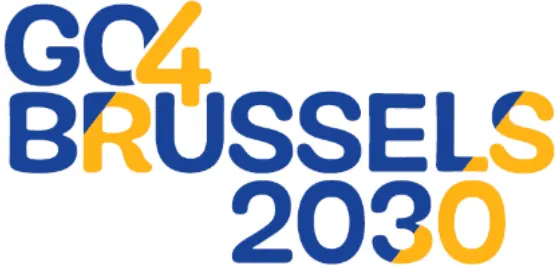Pursue tax reform
We work on an efficient fiscal policy that takes into account the specific characteristics of the Brussels-Capital Region. In this way, we want to be able to meet the challenges associated with economic development, environmental responsibility and the quality of life in Brussels (objective 1.7_Region)
The further development of an efficient fiscal policy adapted to the specific characteristics of the Brussels-Capital Region is a sine qua non condition for meeting the challenges associated with economic development, environmental responsibility and the quality of life in Brussels.
Overall, we are going to develop a policy that does not increase the tax burden on Brussels families, but strengthens their purchasing power as well as for future generations. Our fiscal policy will focus more on preserving middle class in Brussels. As far as fiscal policy is concerned, we continue to work on several fronts. We will give incentives to companies by harmonising and (possibly) reducing regional and municipal taxes.
In addition, the Region will also develop a traffic tax system that is in line with the objectives of making Brussels a Region that treats the environment with respect and at the same time aims to reduce traffic congestion in Brussels. In order to support access to property, the sustainable renovation of buildings and the preservation of the middle class in Brussels, the government will evaluate registration and inheritance taxes in order to be able to focus more precisely on their implementation.
The government also wants to modernise and simplify the inheritance tax system to better reflect the changing family structures. In that context, the situation of unrelated people, de facto cohabitants and the generational leap will be considered.
Who’s in charge?
- Initiating Minister(s): Minister of Finance, Minister of Local Government
- Associated Minister(s): Prime Minister, Minister for Mobility, Public Works and Road Safety
- Partners: Brupartners, Bruxelles Fiscalité, BPL, Hub.brussels, finance.brussels
- Steering Committee : Brupartners, Bruxelles Fiscalité, Hub.brussels, finance.brussels
Consult the full multi-year plan Go4Brussels 2030
1. Harmonization of municipal (business) taxes
- Establish a clear land register of these taxes
- Examination of the various tariffs and taxes to which Brussels companies are subject, at municipal level.
- Striving for the greatest possible uniformity.
Steering bodies
- Minister for Finance and Budget
- Minister for Local Government
- State Secretary for Economic Transit
2. Further simplifying the Brussels tax system
- Implement administrative simplification for businesses.
- Harmonise and, if possible, reduce regional and municipal business taxes on the basis of a fiscal pact with the municipalities. An evaluation of the fiscal pact (with consultation of the partners) is foreseen.
Steering bodies
- Minister for Finance and Budget
- Minister for Local Government
3. Takeover of the municipalities tax services
Takeover by Bruxelles Fiscalité of the local tax department at the request of the municipalities on the basis of defined modalities.
Steering bodies
- Minister for Finance and Budget
- Minister for Local Government
4. Development of a sustainable traffic tax
The Brussels government wants to focus on the development of a traffic tax that contributes to improving the overall energy performance of the vehicle fleet, reducing traffic congestion in Brussels and helping to improve the quality of life for everyone in the city.
- Convince the other regions to introduce an intelligent kilometre charge for light vehicles and conclude a cooperation agreement to this end. All this taking into account the existing advice in this area (PRDD, GOOD CHOICE, GOOD MOVE).
- Abolish the current road taxes and replace them with the new charge (in line with the objectives of the Low Emission Zone); In the meantime, provide for greater progressiveness of the tax on entry into service, depending on the environmental performance of the vehicle, in order to discourage the purchase of vehicles not adapted to urban traffic.
Steering bodies
- Minister for Mobility
- Minister of Finance
- Minister for the Environment
5. Modernisation and simplification of succession
We provide for a modernisation and simplification of succession to take better account of modern family structures and forms of cohabitation.
To this end, we analyse the situation of non-family members, de facto cohabitants and the generational leap in the context of inheritance tax.
Steering authority:
- Minister of Finance
6. Improvement of EPB class of real estate through tax incentives
Go4Brussels 2030 wants to study the modalities of stimulating taxation and use it to encourage owners to improve the EPB class of their property.
Review the various tax systems in line with the Brussels renovation strategy.
Taking into account the planning of the takeover of the service concerned – evaluate the registration and inheritance taxes, with a view to giving a price signal linked to the energy efficiency of the property at the time of transfer, provided that a complete energy renovation is carried out within a certain timeframe and after analysis of the EPB and that a strategy for improving energy performance is developed.
Steering bodies
- Minister of Finance
- Minister for the Environment
- State Secretary for Housing
